The other week, I discussed the differences between Bespoke, MTM, and RTW but on top of that, you often read description such as Custom Made, Handmade, or Bench Made but rarely ever machine made. In this guide, I discuss the differences between these terms so you can spot false advertisements more easily, and get a better value for your money.
I highly recommend watching the video for an illustrated definition of these terms. Please share it, like it and comment on youtube if you think it’s helpful.
CUSTOM / CUSTOM-MADE
The term custom implies that something is customized to your taste. Unfortunately, it’s not a protected term so that can mean anything from choosing the length of your shirt to defining anything you want in your garment. It does not tell you whether something is machine-made or hand-made, or to what degree it is hand-made, or how many hours went into it. It simply implies there’s some degree of customization. As such, it’s an umbrella term that is used by all kinds of businesses and usually, the goal is to make you spend more money. So keep that in mind when somebody advertises it as custom.
Whenever you meet a custom shirt maker, custom tailor, or custom shoemaker, you should always ask exactly what it is that they do. It’s important because the term won’t tell you and it could be anything from made to order, made to measure, or true bespoke. If you don’t know what these terms mean, please check out our other video where I discuss the difference between those terms and explain exactly what they are and what they aren’t.
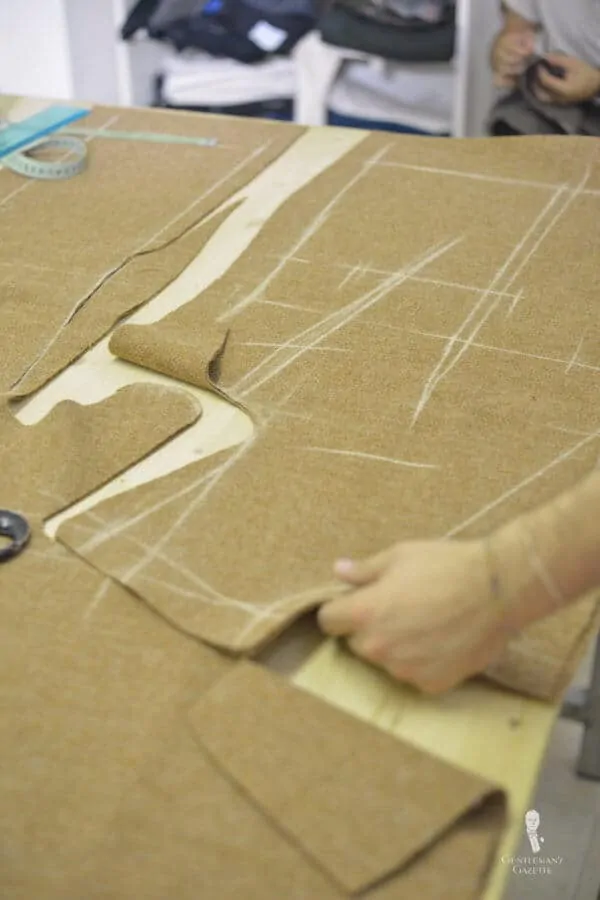
Ask Questions!
It’s important to ask questions, so you don’t overpay for something that is sold as one thing but is actually another. You have to be particularly careful and cautious when somebody calls themselves a custom clothier because that can be anybody who just did a one week or three-day training on how to measure somebody to sell shirts or it could be a twenty-five-year experience haberdasher who truly cares about what you do. Again, it’s crucial to ask exactly why they call themselves that and what the process is the garment has to undergo.
When somebody tells you, they’re a custom shirtmaker, but all they do is measure you and then send those measurements to a factory that makes that shirt, they are just a salesperson who can use a measuring tape. Also, if someone is a custom tailor, they will not call themselves a custom clothier because a tailor is more than a clothier and they want to let you know that’s what they are and that they have the training. So try to figure out where they learned the craft.
A true custom tailor has learned his craft for years, he can make a pattern, he can even create a suit from scratch without a machine altogether. Now, your alterations tailor may also call themselves a “custom tailor” because they can sew a dress but at the end of the day, without the training and the skill, you’re not a true custom tailor. Again, this term is not protected, and people will always use them to their advantage. Look beyond the words and try to understand what the process is they apply so you can reach your own conclusion.
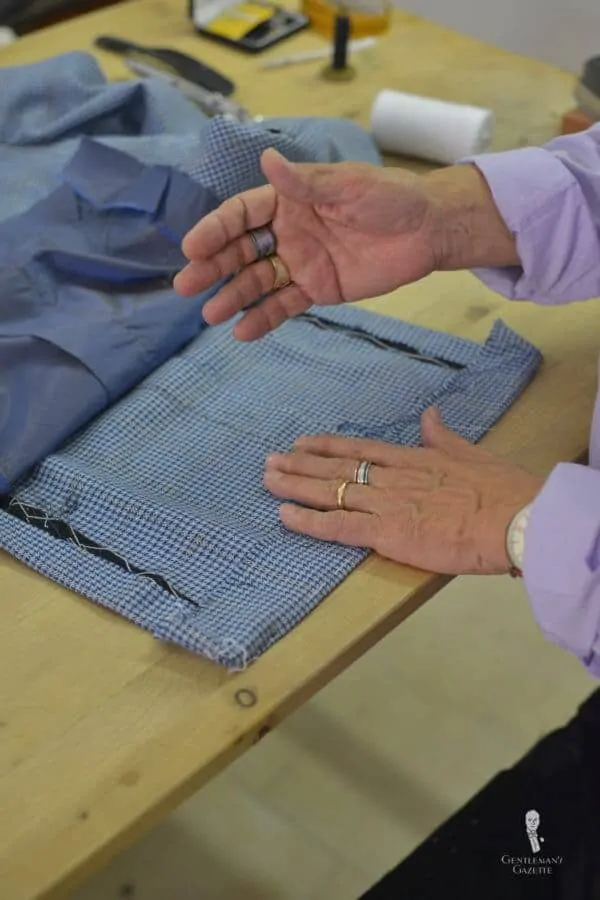
HANDMADE
The ter handmade implies that hand labor is involved somewhere along the way. Doing something by hand usually takes longer than doing it by machine and therefore, it costs more. Overall, handmade does not per se mean better because you could have bad handwork and good machine work. however, when it comes to clothing, handmade usually means hand-stitched and that is a more flexible stitch than a machine stitch, and it looks prettier and is, therefore, more expensive and more desirable. Also, think about a shirt collar, if it is sewn by hand, you can sew it on around which is the shape you’ll actually have. If you sew it on by machine, it is sewn flat, and that’s not a shape that your neck actually has. So, a handsewn shirt collar is clearly superior to the machine sewn one.
However, when it comes to classic men’sclothing, handmade usually means hand-stitched and that is a more flexible stitch than a machine stitch. Not only does it look prettier but the flexibility makes you more comfortable, and hence more desirable. At the same time, it is also more expensive.
Now, think about a shirt collar for a moment, if it is sewn by hand, you can sew it on in a round which is the shape the collar will have when it’s worn on your neck: round. If you sew the collar on by machine, it is sewn flat, and that’s not a shape that your neck actually has. So, a handsewn shirt collar is clearly superior to the machine sewn one because it suits your body better.
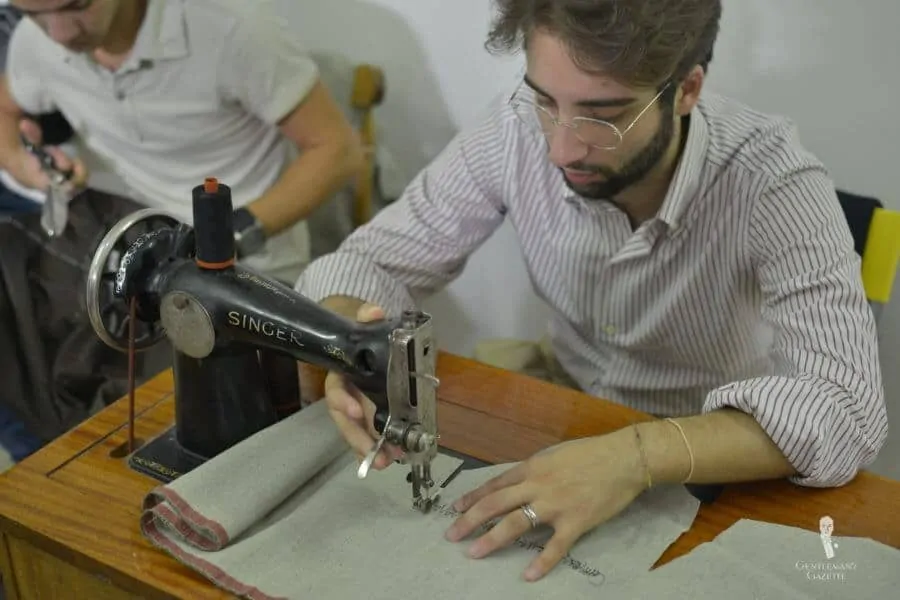
The same is true for a jacket collar; a hand sewn collar is always superior.
However, handmade is one of the most misleading terms because people don’t really define what it is. Sometimes, it’s used to describe a person who sews something with a sewing machine. Other people only use it to describe sewing stitch per stitch by hand. Again, you have to ask what exactly handmade means to understand what you get for your money.
For example, for a tie. Sometimes, people call it handmade because somebody takes the tie, puts it into a machine that then sews it together. Other people only consider ties handmade if it is hand cut and hand sewn. So, just because you buy a handmade tie doesn’t mean that one handmade tie is the same as another hand made tie.
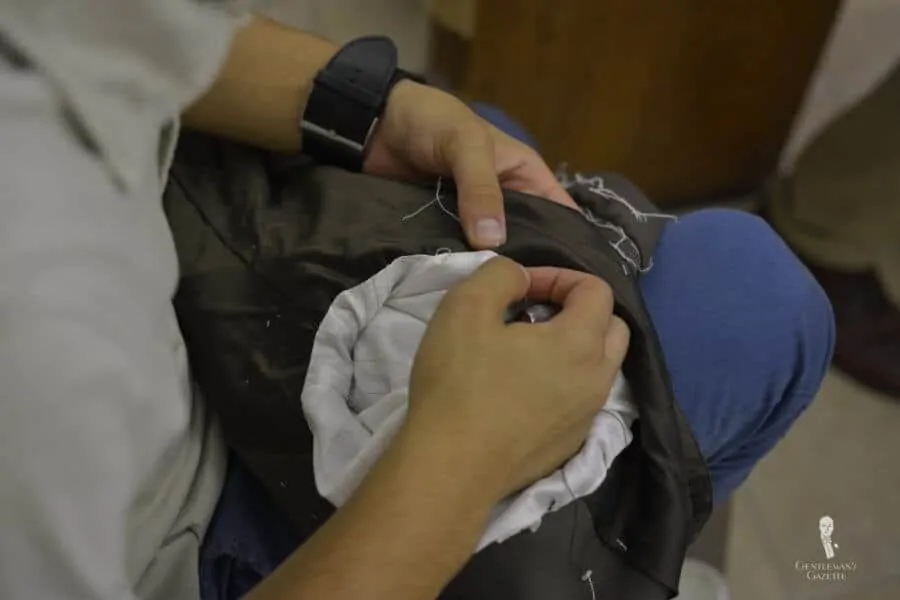
An honest business will always tell you what exactly went into the process when you ask. When people tell you, it’s handmade, but they don’t know what went into it, stay clear of them. Whenever you say the term handmade, bear in mind, it’s a favorite of marketing teams, and it’s simply used to get more money from you.
Therefore, it’s really important to understand what it is and what it’s not.
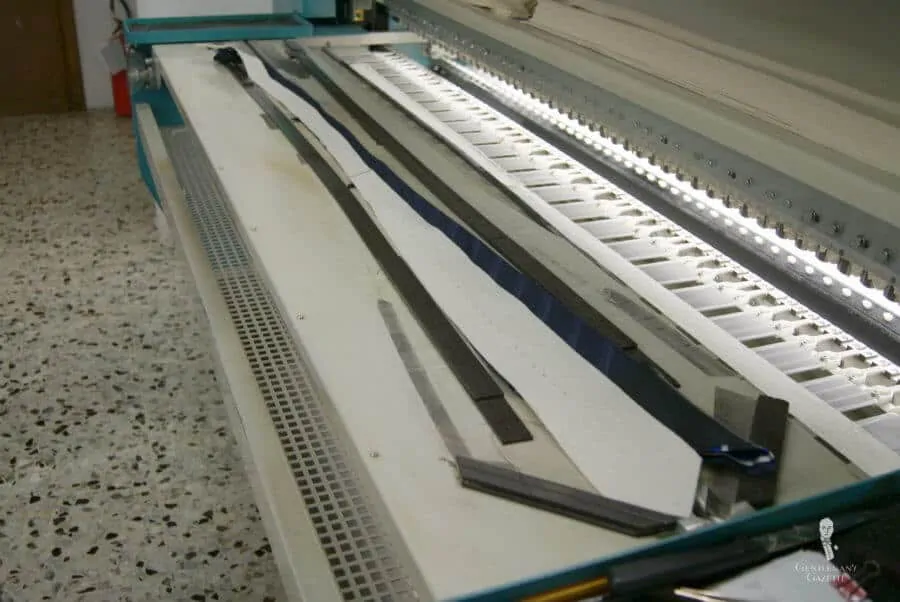
MACHINE MADE
Whenever you buy clothing, people never advertise their clothing as machine made simply because most people don’t associate higher quality with it. That being said, you can create high-quality garments with a certain amount of machine work. It’s used in garments because it’s less expensive, it’s faster, and stitches are more consistent. So if you know something is machine made, you know you should pay less for it than if it is all handmade.
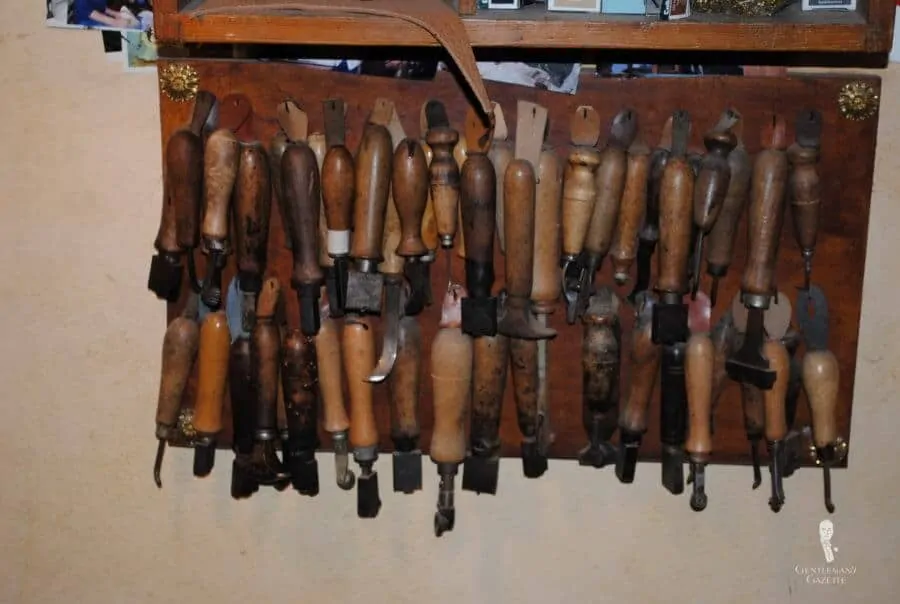
BENCH GRADE/BENCH MADE/HAND GRADE
Basically, it is something that is between machine made and handmade, but the borders are not really defined. More often than not, it is a marketing term used to sell you a machine made product for a higher price. Therefore, it’s important to ask the salesperson what exactly that means. By definition, bench implies that one person sat there and used some tools and machines to create the shoe or the garment. Back in the day, it may be truly meant that somebody on a bench worked on this one product, and it wasn’t an assembly line production but today, you simply don’t know what is actually the case. Ask about it, ask for pictures of the production and if people really, truly mean that something is bench made, there should be one person working on it at the time.
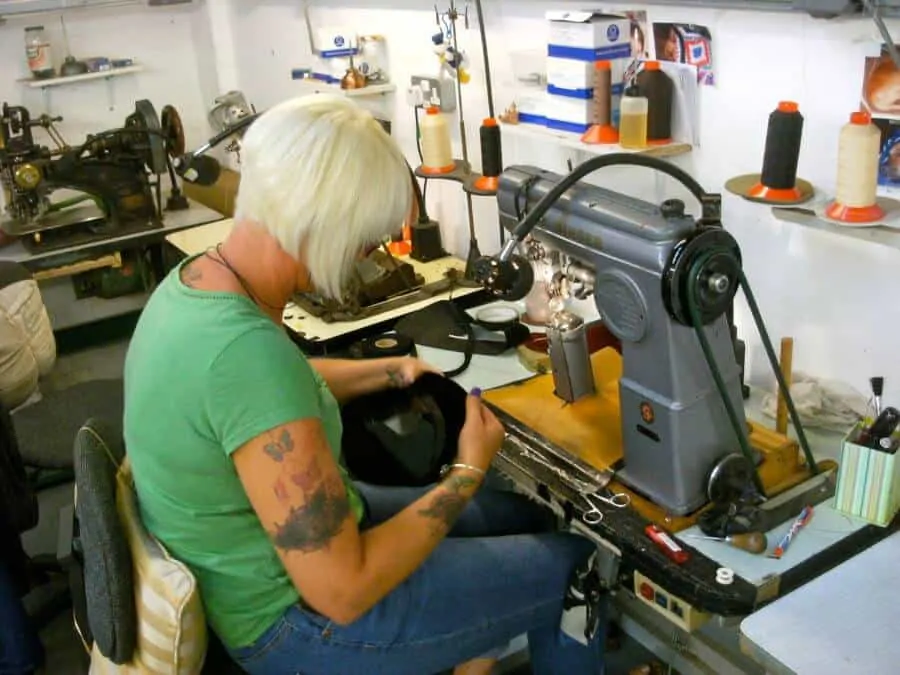
CONCLUSION
At the end of the day, with all of those terms, what it means for you is, buyer beware! Understand what you want, what you can afford, and what is sold to you. Follow those steps and you’ll get a much better value for your clothing, and you also have a better appreciation of what went into the garment and makes you proud when you wear it, and it shows!
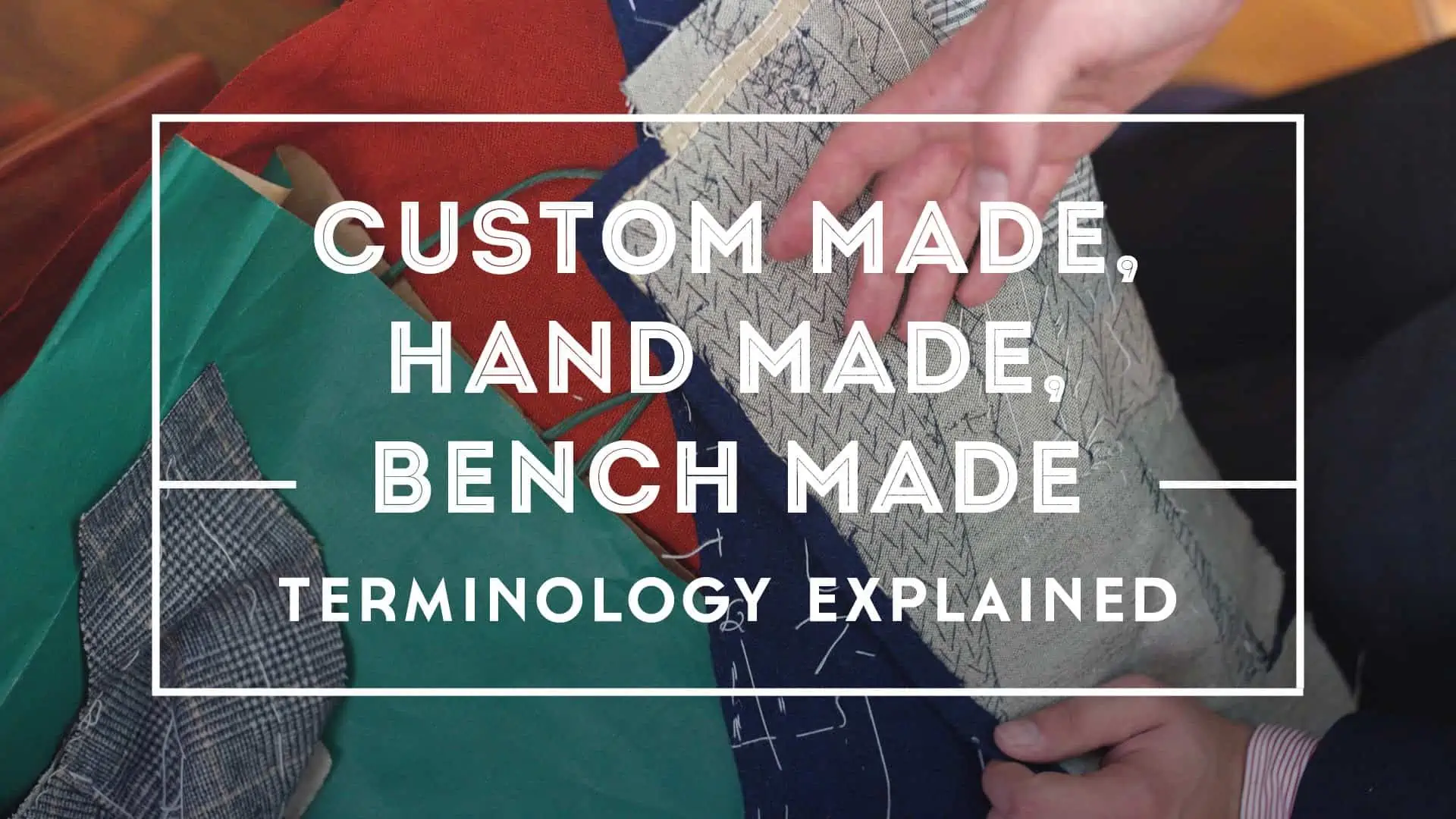
My feeling is that the product (and reputation) tells the story. If it fits well, the collar lays right, you have good mobility and the quality of the materials is what you expect with a full canvas, etc., it’s almost moot to me as to how it was sewn. Service after you take the thing home and put on a few pounds or do some kind of damage is also extremely important. If the business has a good reputation for quality and satisfaction, I am not going to ask a lot of questions about how they work the magic.
Interesting artcle, a few years old but still worth reading:
http://www.nytimes.com/2012/09/09/magazine/whats-a-4000-suit-worth.html?_r=0